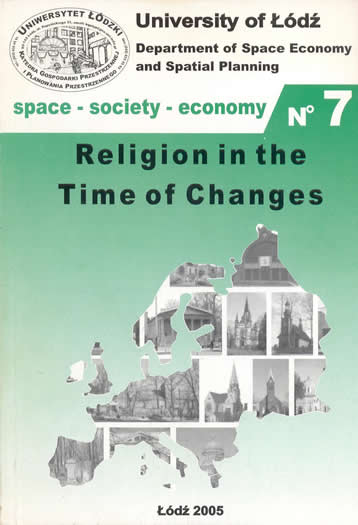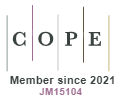Quest for the Alternative Spirituality: Construction of Religious Identity in Contemporary Lithuania
DOI:
https://doi.org/10.18778/1733-3180.07.08Abstract
The transformation of religious area by arising of new modes of expressing religiosity is almost worldwide phenomena. The idea of making up personal bricolage of beliefs, choosing what fits and what does not is very popular mode of religiosity or spirituality today. To hear that one could choose religious identity without religious belief is not surprising in Lithuania today. Sociologically, it could be explained referring to the identity constructing theories. This article presents the research that was performed by the Department of Sociology at Vytautas Magnus University (in 2003-2004). The aim of the research was to explore the process of construction of religious identity via applying Hervieu-Leger idea of four dimensions of religious identification. The data of focused interviews confirms that religious identity could be constructed via one or few dimensions of religious identification excluding other dimensions. However, reference exclusively to one or few dimensions shifts traditional ( or confessional) ways of expressing religiousness and still for somebody rises the question about her/his religiousness in general.
Downloads
References
Beckford J. 2003. Social Movements as Religiuos Phenomena. In Sociology of Religion, Ed.R.K.Fenn. Blackwell Publishing, p.p. 229-248.
Google Scholar
DOI: https://doi.org/10.1002/9780470998571.ch12
Berger P. 1997. Epistemological modesty: An interview with Peter Berger. Christian Century 114:972-75,978.
Google Scholar
Beyer P.1999. Secularization from the Perspective of Globalization: A Response to Dobbelaere. Sociology of Religion, 60:3, 289-301.
Google Scholar
DOI: https://doi.org/10.2307/3711938
Dobbelaere K. Towards an Integrated Perspective of the Process Related to the Descriptive Concept of Secularization. Sociology of Religion, 60:3, 229- 247.
Google Scholar
DOI: https://doi.org/10.2307/3711935
Hadden J.K. 1987. Toward desacralizing Secularization Theory. Social Forces 65:587-611.
Google Scholar
DOI: https://doi.org/10.1093/sf/65.3.587
Hervieu-Leger D. 1998. The Transmission and Formation of Socioreligious identities in Modernity. International Sociology, V.13, No.2, p.p. 213-228.
Google Scholar
DOI: https://doi.org/10.1177/026858098013002005
Stark R. 1999. Secularisation R.I.P. Sociology of Religion, 60:3, 249-274
Google Scholar
DOI: https://doi.org/10.2307/3711936
Swatos W.H., Christiano K.J. Secularization Theory: the Course of Concept. Sociology of Religion, 60:3, 209-228.
Google Scholar
DOI: https://doi.org/10.2307/3711934
Ziliukaite R. 2000. Religiniu vertybiu kaita Lietuvoje 1990-1999. In Kulturologija, Ed. A. Matulionis. Gervele, p.p. 213-252.
Google Scholar
Downloads
Published
How to Cite
Issue
Section
License

This work is licensed under a Creative Commons Attribution-NonCommercial-NoDerivatives 3.0 Unported License.









